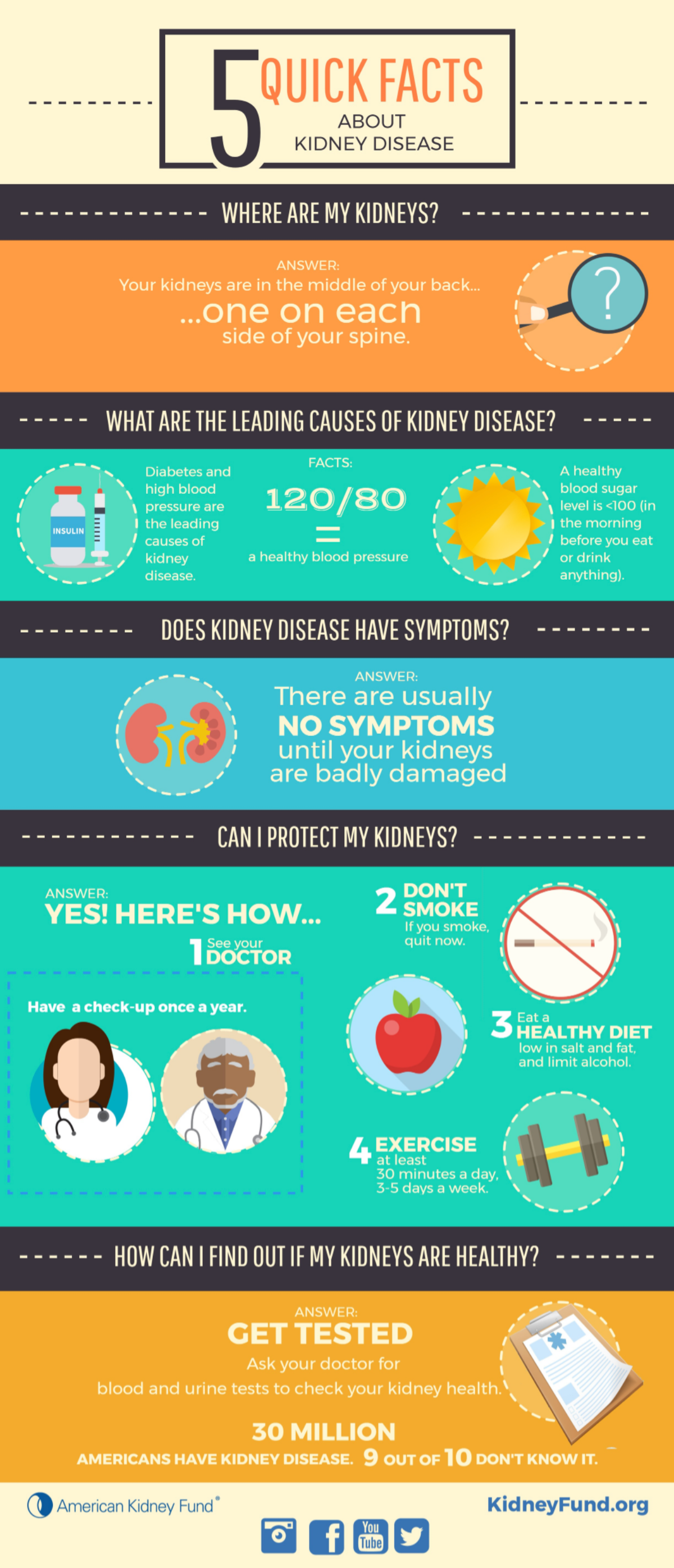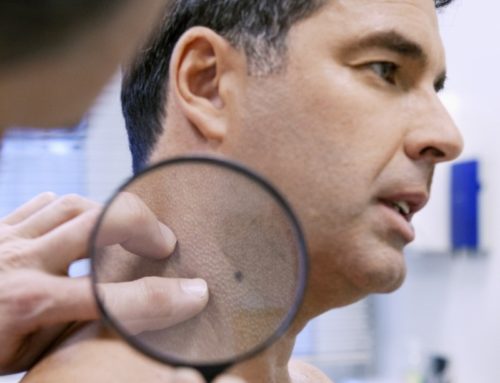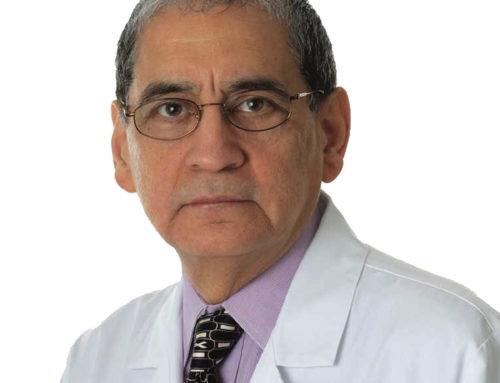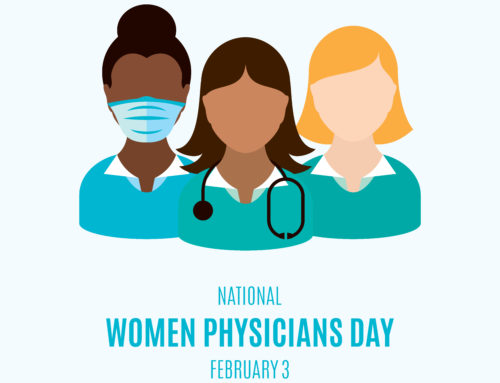Chronic kidney disease is a serious medical condition that affects 37 million people in the United States, and approximately 10% of the population worldwide are living with some degree of the disease. Because the symptoms often go unnoticed until a more advanced stage, many people with the condition suffer serious health complications – all the way to kidney failure. Those who reach kidney failure will be on dialysis for the rest of their lives or need a kidney transplant.
“Kidney disease happens quietly – and many people don’t experience symptoms or changes in their health as their kidneys slowly lose function. It’s not until it’s almost gone that fluid overload, electrolyte imbalance and kidney failure become apparent,” says Alan Koffron, MD, HPB surgeon with University Surgical Associates. “Diabetes and high blood pressure are the leading causes of kidney failure and are so widespread. It’s easy for these conditions to fly under the radar as serious damage is being done, and it’s the reason that more and more people are at risk for this complex medical condition.”
The effects that uncontrolled diabetes and high blood pressure can have on a person’s kidney function can’t be overstated. While many people don’t consider these conditions to be life-threatening, it’s the slow buildup of damage that’s done over time that causes kidney issues. Dr. Koffron notes that people who do not prioritize their health and adequately control these contributing health conditions are often shocked to learn they have irreversible kidney damage. Kidneys don’t typically hurt, and it’s a case of out of sight, out of mind.
PREVENTION IS IMPORTANT
If you’ve been diagnosed with diabetes or high blood pressure, proper management from the beginning is critical. This means controlling your weight through diet and regular exercise, taking medication as prescribed and staying in close contact with your physician until blood pressure and A1c levels have stabilized. Individuals with these conditions should have an annual kidney function test to determine if any damage is occurring.
“When kidney disease starts to become noticeable, you’ll likely experience fatigue, swelling in the legs and ankles, an increase in the volume of urine your body makes, shortness of breath and muscle cramping,” says Dr. Koffron.

“Because none of these symptoms seem particularly dangerous, it’s easy to ignore them or attribute them to some other minor health concern. But if you have a family history of kidney problems and/ or have high blood pressure or diabetes, it’s important to talk to you doctor right away.”
Individuals diagnosed with CKD will be referred to a nephrologist, or specialist whose job it is to maintain kidney function. They do this with dietary support, medication, expertly managing blood pressure levels, and helping you optimize your health to maintain your current kidney function for as long as possible. Because kidney disease is progressive, those who live with chronic kidney disease long enough will likely have to go on dialysis and eventually need a kidney transplant. According to Dr. Koffron, properly managing chronic kidney disease can mean the difference between needing a new kidney in three years or twenty. Individuals who follow their nephrologists’ recommendations typically have better long-term results.
CHOOSING A KIDNEY TRANSPLANT EXPERT
When a person’s chronic kidney disease continues to progress to kidney failure and end stage renal disease, a kidney transplant may be the only viable treatment option. As with any highly specialized surgical procedure, you want a surgeon who has vast knowledge and experience in the field.
Dr. Alan Koffron is an expert in kidney transplant surgery options and a leader in living-donor kidney transplantation. He is a fellowship trained multiple-organ transplant and hepatobiliary surgeon who specializes in liver and kidney transplant and advanced surgical treatment of conditions of the liver, pancreas and biliary system. He is also the Surgical Director of Erlanger’s Kidney Transplant Center.

“Advances in the science of kidney transplantation mean that the procedure itself is fairly routine, yet one that requires a robust multidisciplinary team that is invested in the patient’s outcome and provides ongoing monitoring and care for months and years in the future. Choosing a surgeon in your own area is a great advantage when it comes to follow up care,” says Dr. Koffron. “Now rather than travel to other larger cities for a kidney transplant, people have the option of seeking care that’s not only highly specialized but also available in their own community.”
For more information or to schedule an appointment with Dr. Koffron, call 423.267.0466.






Leave A Comment